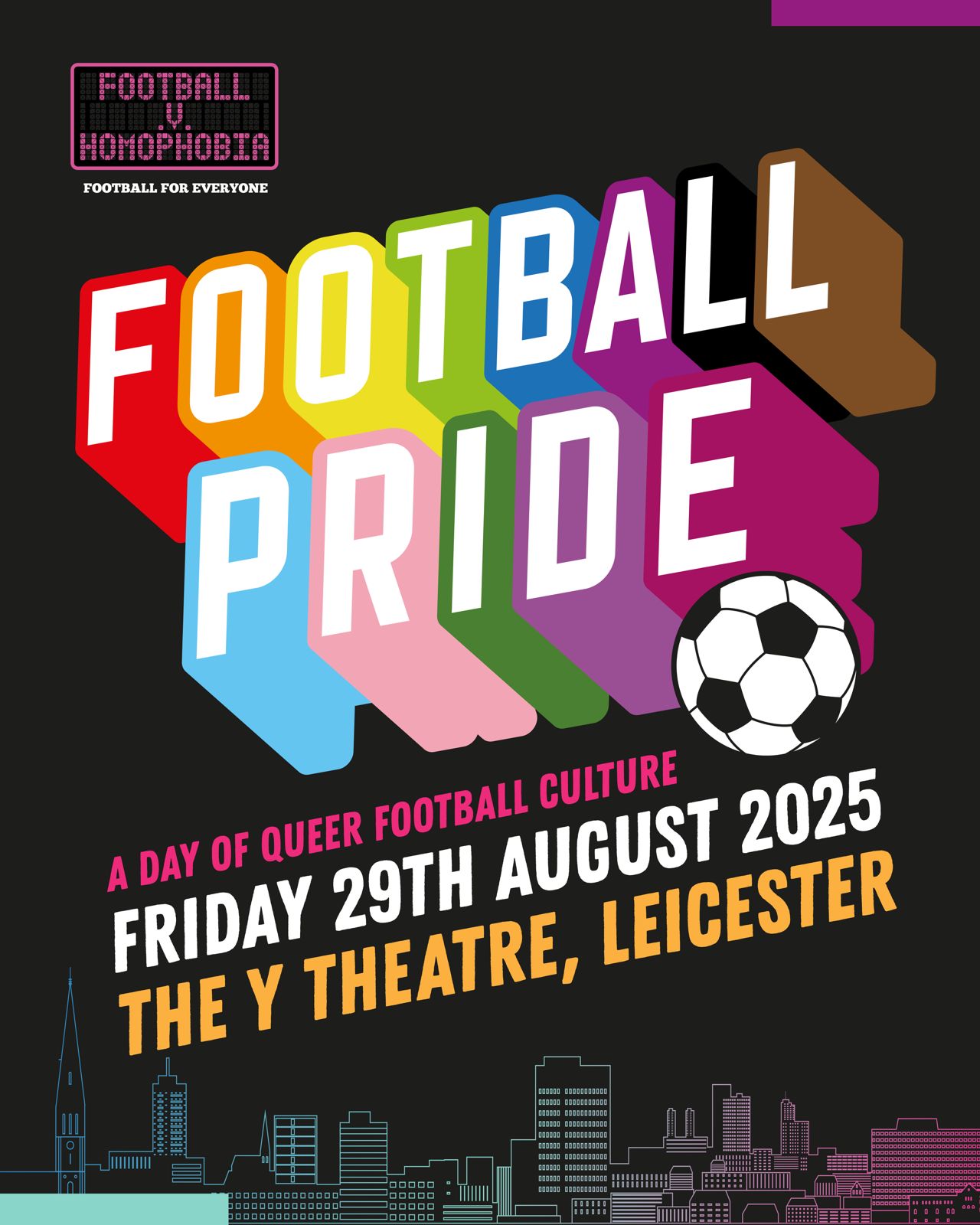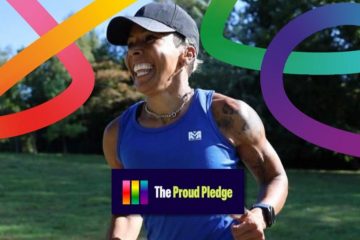Rainbow Laces fading, but data shows LGBTQ people in football have real concerns
The Premier League will substitute Stonewall’s Rainbow Laces for a new campaign next season; clubs’ workforce diversity reports suggest size of LGBTQ community in the game, as growth of fan groups continues; new statistics highlight rise in homophobia and transphobia…

Reactions to the news that it’s the end of Rainbow Laces in the Premier League were a pick-and-mix selection.
Social media algorithms prioritised numerous rage-bait posts which talked about the banning of laces and captain’s armbands in Pride flag colours. That’s not true, but the territory was perfect fodder for blue-tick accounts.

There were predictably sour attacks on the charity Stonewall. The Telegraph even claimed “victory” over “rainbow nonsense” on behalf of fans, despite the PL insisting they remain committed to promoting LGBTQ inclusion.
It means the paper’s chief sports writer can get furiously worked up all over again when the PL launches its new initiative in LGBT+ History Month in February, which for 15 years has been the activation period for the Football v Homophobia campaign.
Meanwhile, the Christian ministry Ballers in God tried to take a degree of credit for the removal of Rainbow Laces, writing: “We prayed. We fasted. And God heard us.”
Whoever writes their social posts favours a didactic tone, dressed up under the guise of ‘just asking questions’. On this post and another in Pride Month that carried the same rainbow armband image with a line about “obedience over acceptance”, it was left to LGBTQ people of faith and their family and friends to defend themselves in the comments.
Detractors of Rainbow Laces would probably refuse to believe it, but I know of several people in football who are grateful for the campaign. Yes, there are still no active out gay or bi PL players, although that was never the ask – it was always an invitation for teammates to express allyship.
Each season, the annual activation brought Pride-style positivity, and got people talking about authenticity. As examples, it provided context for referee Ryan Atkin and teenage striker Jake Daniels to come out publicly as gay (both are far happier for having done that) while surveys showed a shift towards more inclusive attitudes on the terraces.
The PL supported the message for more than a decade, but offered no official comment about the separation last week.
Stonewall did provide a statement, saying there is a “natural ebb and flow” to campaigns before mentioning the Women’s Super League as having “taken up the mantle” – although it’s still not clear if the WSL will hold on for more Rainbow Laces in 2025/26.
LGBTQ supporters and staff deserve to feel safe
When unpicking last season’s troubled activation, the co-chair of the UK’s alliance of LGBTQ fans said the PL had “dropped the ball”.
Pride in Football’s Rishi Madlani felt visibility had been prioritised over voices, echoing the leaders of at least three fan groups who were put under pressure when a player from their club abstained from showing allyship.
It’s why many LGBTQ supporters weren’t exactly shedding tears over Rainbow Laces last week. However, for most of its history, from the giant welcome mats outside stadiums to some spectacular moments inside, the focus on vibrant colours was broadly welcomed by fans.
Without it, we might not have so many active LGBTQ groups in the Pride in Football family today. Groups can be found at 18 out of 20 PL clubs, with around 30 more in the EFL, which has successfully operated the Rainbow Ball activity with Puma for the last two seasons.
It’s also about employees. In early June, the first application of “Rule N” saw all 92 clubs in the top four men’s divisions publish data about the diversity of their workforces.
The results are somewhat rudimentary, and while every respondent was reassured they would stay anonymous, you can see where the sexual orientation question elicited a very high percentage of ‘prefer not to say’ answers, or was left blank. It indicates caution well above the average, and perhaps even fear.
Nevertheless, there’s enough evidence to show that plenty of LGBTQ people work for Premier League clubs, which on average have workforces of around 450 people. Four clubs recorded figures of 4% or more for employees who said they are not heterosexual, while at least three indicated they had staff members who are trans or non-binary.

Encouragingly, there are now clubs operating internal networks or ERGs; partnering with their LGBTQ fan groups on education, such as the training of stewards; and adapting their policies and procedures to support a more welcoming workplace culture.
EDI leads are among those being encouraged to learn more about this development at Football Pride in Leicester on 29 August.
Like all businesses, football clubs are looking to attract and retain the best talent, and while there should never be pressure on LGBTQ people to come out at work, we know that a life lived fully in the shadows is unfulfilling. In a competitive, intense industry with a history of homophobia, conversations and campaigns need to go beyond locker rooms and the terraces.
We have fresh data for those areas of the game too, though. Published in July, the Home Office’s annual release collated reports of homophobia at nearly 13% of all PL matches in 2024/25, an increase on the previous season.
For the same period, reports of transphobia to Kick It Out doubled, while the organisation received the same number of reports (68) linked to homophobia in the pro game as in 2023/24.
Consider too, that less than a quarter of LGBTQ fans who experience or witness homophobic abuse report it to KIO, according to the results of an Out and Out Football survey in 2024 (90% of those fans said they had reported the incidents to the relevant club).

Meanwhile, in the last few days, Wolves have published fan sanction data from 2024/25 that shows the club issued 10 sanctions for homophobic hate crime or discrimination. The data shows six sanctions for racism, with two for sexism or misogyny, and relates only to matchdays.
As for online hate linked to football, the vast majority of LGBTQ people will tell you that homophobia has become so prevalent since the major social platforms scaled back moderation that they are now less inclined to report it. KIO’s statistics appear to reflect this (44, down from 65).
Of course, there’s been far less talk about this than there has been about armbands, even though the numbers directly inform us about the issues facing our community in the game.
That’s why it’s essential that LGBTQ voices come to the fore, and are given a chance to rise above the noise of Facebook ragebait pages, right-wing media, and religious preachers.
There was never going to be a Premier League pot of gold at the end of Rainbow Laces, but on balance, LGBTQ fan groups, advocates, employees and personalities in the game are richer for having had the campaign to rally around.
We don’t yet know what its replacement will look like, but it will need the support of all of the above to be successful. This is the community’s chance to renew a sense of solidarity, set fresh targets, and put pressure on the authorities to be better prepared.
The recent data informs us about both representation and rising prejudice in football. In advance of any activations in February, we need to see more signs of accountability and respect, something to clear away the gathering gloom.
Want to hear from LGBTQ people in the game? Attend Football Pride at The Y Theatre in Leicester city centre on Friday 29 August (10am to 5pm) – tickets are on sale NOW.
Further reading…
Premier League to replace Rainbow Laces with new LGBTQ campaign (Outsports, August 2025)
These Rainbow Laces moments lifted up LGBTQ people in football (Sports Media LGBT+, December 2024)
Sports Media LGBT+ is a network, advocacy, and consultancy group that is helping to build a community of LGBTQ+ people and allies in sport. We’re also a digital publisher and can help with your content requirements. Learn more about us here.
We’re interested in your news and stories. Share with us and tap into a worldwide audience through our Google News affiliate website which attracts thousands of visitors, and our popular social channels. Contact us to discuss how we can help you.


